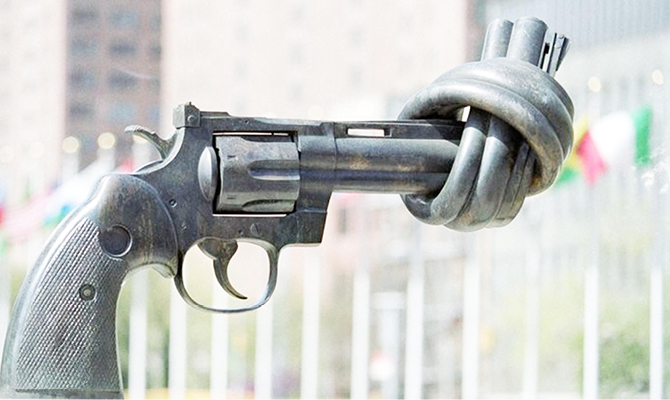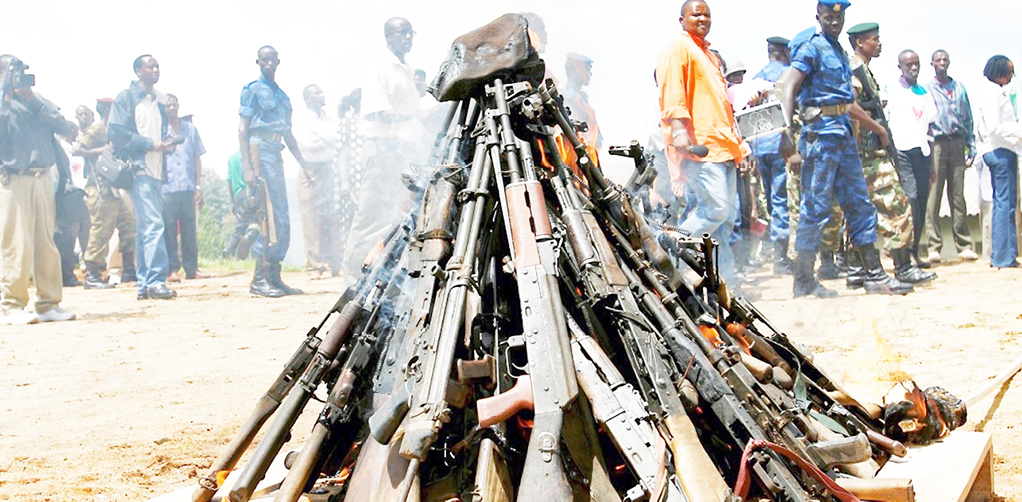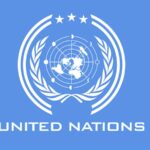In May 2013, the African Union adopted an ambitious initiative dubbed ‘silencing the guns’ as part of a declaration marking the 50th anniversary of the African Union. Daily Trust Saturday looks at the situation at the initiative years after.
The declaration, which is to realize a conflict free Africa, has a target to end all wars in Africa by 2020. However, ten years after the declaration, the sound of guns have become even louder on the African continent as more countries became engulfed in armed conflict.
There were at least 15 countries with active armed conflicts in sub-Saharan Africa as of 2019 some of which include: Burkina Faso, Burundi, Cameroon, the Central African Republic (CAR), Chad, the Democratic Republic of the Congo (DRC), Ethiopia, Kenya, Mali, Mozambique, Niger, Nigeria, Somalia, South Sudan and Sudan.
Although the number of state-based conflicts declined slightly in 2021, to 25, the numbers were still much greater than a decade ago, a report on conflict trends in Africa by Peace Research Institute Oslo indicates.
The situation has been made worse by the proliferation of small and light weapons in Africa.

Where are the guns in Africa?
In the first-ever continental analysis of illicit arms flows in Africa titled – Weapons Compass: Mapping Illicit Small Arms Flows in Africa, the African Union Commission and the Small Arms Survey revealed that African civilian actors, which include private individuals, registered businesses such as private security companies, and non-state armed groups, hold more than 40 million—or almost 80 per cent—of all small arms on the continent. In contrast, the continent’s armed forces and law enforcement agencies hold less than 11 million small arms.
The report also estimates that among the 40 million civilian-held firearms in Africa, 5.8 million are recorded as being officially registered, while 16 million are unregistered, with the status of the remainder remaining unclear (Small Arms Survey, 2018).
The analysis further reveals that Western Africa concentrate the largest number of – licit and illicit-civilian-held firearms on the continent with about 11 million, followed by Northern Africa with 10.2 million and Eastern Africa with 7.8 million.
However, it is important to note that the above estimates may not be reflective of the actual scale of arms available on the continent as data collection for small and light weapons remains a major challenge.
Between policy and implementation
To realize its target of silencing the guns, the AU peace and security council adopted an AU Master Roadmap of practical steps to silence the guns in November 2016, three years after the declaration.
But with only four years left to the deadline of 2020 not much could have been achieved, hence at an extraordinary session in December 2020, the AU Assembly extended the implementation of the AU Master Roadmap to 2030.
The AU Assembly further extended until 2030 the annual September commemoration and conduct of Africa Amnesty Month for the surrender and collection of illicit arms and light weapons.
The amnesty month which has been in place since 2017 is to encourage civilians to voluntarily surrender illicit weapons in their possession on condition of anonymity and immunity from prosecution.
In furtherance to providing a framework for the implementation of the initiative, the Monitoring and Evaluation Mechanism for the AU Master Roadmap of Practical Steps for Silencing the Guns in Africa by 2030 was adopted in Nairobi in May 2021 and subsequently endorsed by the AU assembly in February 2022.
AU’s silencing the guns initiative at risk – AU Rep
The African Union High Representative for the Silencing the Guns Initiative, Mohamed Ibn Chambas, in March 2023 informed members of the United Nations security council that the goal of silencing the guns in Africa this decade is being challenged by climate change, terrorism, coups, and the continent’s history.
During the UNSC Open Debate On “Peace and Security in Africa: The Impact of Development Policies in the Implementation of the Silencing the Guns Initiative,” the AU representative said the meeting “is coming at a moment when Africa is faced with multiple challenges that put at risk the attainment of the noble objectives of silencing the guns even by the new timeline of 2030.”
According to him the “causes of these challenges are historical, institutional, constitutional, economic, social and cultural. They relate also to the impact of climate change.”
Chambas says for Africa to realise its target of silencing the guns, it must embark on people-centred recovery and transformation. Africa must give prominence to investment in human capital development and utilisation.
“For this transformation to be attained and sustained, there’s need to secure abandoned financial resources.”
“Digital technologies offer us a chance to unlock new pathways for rapid and inclusive economic growth, innovation, job creation, and access to services,” the AU rep said.
We must go to source of the weapons – Amb. Bulus Lolo
Former Nigeria’s ambassador to Ethiopia and permanent Representative to the African Union, Ambassador Bulus Lolo, Speaking on Trust TV’s Africa Update says to Silence the guns on the continent, African leaders must go to the source of the weapons.
Speaking on the challenges confronting the initiative, Ambassador Lolo blamed the poor implementation of the initiative on lack of commitment of African leaders saying that although there’s the African peer review mechanism in which African leaders examine themselves and give a scorecard on their performance there is no mechanism to hold any accountable as it depends on the willingness of the leaders to do what is right.
He said “The second thing there that is dug in the policy is the lack of enforcement capacity. If you look back when that decision was taken, it was taken by the assembly of heads of state, but the mandate then falls on the African Peace and Security Council, which is the organ that has the mandate for the prevention, the management, and resolution of conflicts on the continent.”
“If you see the operations of the AU PSC, which is what the African Union Peace and Security Council acronym goes by, you’ll see that they do not have enough financial resources. They are dependent on donors for most of their operations, whether it is to launch a peace support mission, and so, many other activities suffer because of lack of resources,” he added.
According to the former ambassador, the rise in terrorism is a clear indication of the ready availability of small arms and light weapons which he says are not manufactured anywhere on the borders.
Bulu Lolo further attributed the rise of armed conflict in Africa to the inability to manage diversity in many African countries.
“2030 will come and go. It’s only seven years from now to 2030, but new conflicts are emerging. Simple core, let us go back. Do what will enhance our unity, do what will enhance stability, and let us be fair and equitable in the things that we do. These done, you will see there will be less clamour for the things that actually give rise to the conflicts that we’re dealing with,” he says.
2030 will come and go – Wg. Cdr. Musa Salmanu (rtd)
A former UN expert on mission, Wing Commander Musa Salmanu also featuring on Trust TVs Africa update, says unless African leaders commit to investing in human capital development and effectively manage diversity in African countries, 2030 will come and go without any impact of the silencing the guns initiative.
“When poverty is reduced or people have gone out of poverty, the incentive to go into violent conflict is less. When there is good governance, the incentive to go into violent conflict is less because there are more ways or democratic ways of solving problems or disagreements between people and communities.”
“So, when there are channels to which people can channel their grievance, when governments do not see the need to invest in hard security or physical security but channel those resources to human security, you find out that the incentives or the likelihood that people go into violence is less. When there is no violent conflict, the tendency that these arms will find a willing market around here is rare.”
Salmanu attributed most of the armed conflicts on the continent to the inability to manage diversity.
“Have we managed diversity in a way that strengthens what we have? Have we managed religion? Have we managed our politics? Have we assured that there is justice, have we assured that the democratic space is strengthened in a way that people have means to which they can air their grievances in a way that they feel respected?
“Have we also as leaders determined that we’re going to move on…If you look from 2020 to now, we’ve had nine attempted coups in Western Africa, some were successful. And whenever a coup happens, you find out that the population of the citizens welcome such aberration.”
“So, what it says is that there is so much out there. There is so much energy that needs to be tapped in. There is so much that needs to be done to bring prosperity to everyone in a way that people are able to talk, dialogue and cooperate among themselves instead of fighting,” Salmanu added.

 Join Daily Trust WhatsApp Community For Quick Access To News and Happenings Around You.
Join Daily Trust WhatsApp Community For Quick Access To News and Happenings Around You.


